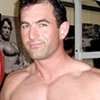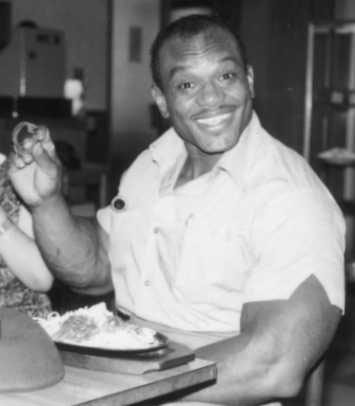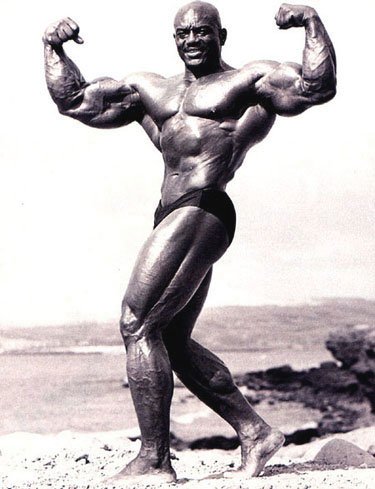After many years as an activity that served mainly as a backdrop for weightlifting competition, bodybuilding in the 1960's was emerging as a sport in its own right and one man from this era created a physique that set, for all time, the standard in physical excellence. 40 years later and the size and shape he created then has, in the eyes of many people, yet to be surpassed.
Mention the name Sergio Oliva and anyone with even a limited knowledge of bodybuilding will know you talking about someone extraordinarily special, for reasons as multitudinous as the muscle fibers that comprised his one of a kind physique.
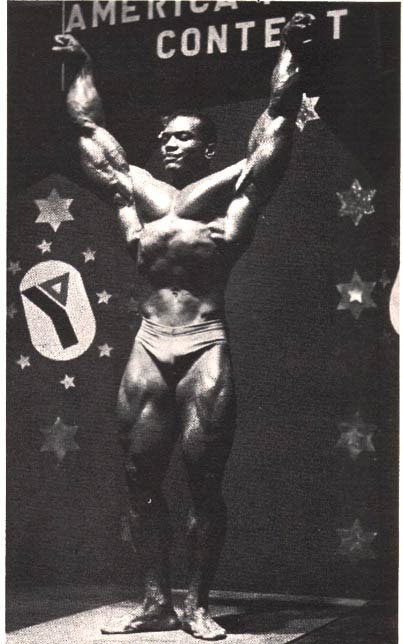 Beginning with his first major physique contest in 1964 - the AAU Mr. America - Sergio rose meteorically to become, with his 1967 Mr. Olympia win, the best bodybuilder in the world, and once he had achieved this, the consensus within bodybuilding was that he was built like nothing seen up until that point, that he was light years ahead of the competition.
Beginning with his first major physique contest in 1964 - the AAU Mr. America - Sergio rose meteorically to become, with his 1967 Mr. Olympia win, the best bodybuilder in the world, and once he had achieved this, the consensus within bodybuilding was that he was built like nothing seen up until that point, that he was light years ahead of the competition.
Today, four decades later, he is still considered the most genetically gifted bodybuilder to have graced the bodybuilding stage, even considering the emergence of magnificent champions like Lee Haney in the 1980s and Ronnie Coleman in the '90s.
Without every trick, and substance, in the book available to him, unlike the competitors of today, Sergio was able to craft his spectacular physique with natural brute strength forged through years of Olympic-style weightlifting and a rare aptitude for building muscle in all the right places - it was as if God himself decided to bestow the genes necessary to create perfect physical specimen, to see if the look would catch on.
Well as we know bodybuilding has witnessed a succession of great champions and the sport has certainly caught on, but very few men have come close to replicating the look Sergio in his prime presented.
The perfect bodybuilding physique is universally considered to have a small waist, wide shoulders and back, massive flaring thighs, diamond-shaped calves, a thick chest, tiny joints to accentuate muscle size and create a greater illusion perfect shape and proportion, huge arms and an owner who presents it well with a perfectly choreographed posing routine and a ton of class.
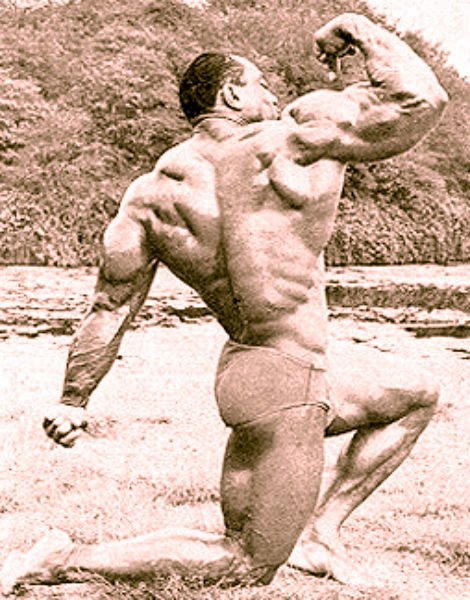 Sergio had all of this except for one thing: his perfect proportions and massive size were definitely no illusion, although his small joints certainly made his huge muscles look even more immense. He was the real deal. Nobody came close to an in-shape Sergio.
Sergio had all of this except for one thing: his perfect proportions and massive size were definitely no illusion, although his small joints certainly made his huge muscles look even more immense. He was the real deal. Nobody came close to an in-shape Sergio.
Nicknamed The Myth because of the prodigious bodybuilding legacy he built over such a short period, in winning the Mr. Olympia from 1967 through to 1969 and ushering in a new, previously unattained look, and the sheer degree of perfection he achieved as a bodybuilder, Sergio actually began his landmark career back in his native Cuba as a 17-year-old strong, but far from huge weightlifter.
Discovered by a professional weightlifting manager as the muscular Sergio was sunning himself on a Cuban beach, the youth, after being put through his paces at a nearby gymnasium, the Roger Gonzalez Gym in Guanabacoa, the following day, was quickly identified as having all of the attributes necessary to become one of the best Olympic weightlifters in the world.
With his very first lift he easily pressed 200 pounds overhead. His coach was ecstatic. He was even more overjoyed when Sergio, a mere three months later, broke the Cuban record for the press before proceeding to break his own record at the same meet.
From there, Sergio, fast developing a reputation for being the strongest man in Cuba, was selected to represent his country at the 1961 Pan Am Games in Kingston, Jamaica. To prepare for this event Sergio and a contingent of Cuban lifters journeyed to Moscow, Russia, to train with the best weightlifters in the world for three months. In Russia Sergio refined his technique and was poised to win several Gold Medals at the Pan Am Games.
An independent man, then and now, Sergio, born on the Fourth of July, longed to leave Communist Cuba. As the man himself likes to say: "Nobody made me except my Lord. I made myself and I put everything together myself." Naturally the fascist state threatened the very independence that he held dear. So as the Pan Am Games approached, Sergio, who was to compete in the 198-pound class, developed a plan he had been incubating for several months, which would culminate in a dream he had had for many years: freedom.
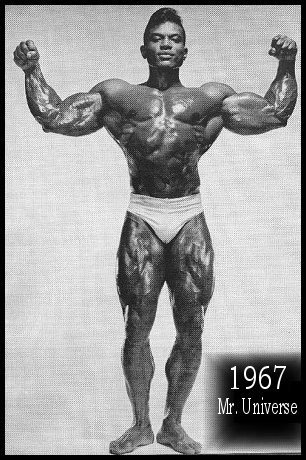 The Pan Am Games arrived and Sergio now had his chance. He made his big break the day before he was to compete and never turned back as he literally ran for his life. All the way to the American Embassy, straight past two burly Marines manning the doors, and ultimately to freedom from Fidel Castro's oppressive regime.
The Pan Am Games arrived and Sergio now had his chance. He made his big break the day before he was to compete and never turned back as he literally ran for his life. All the way to the American Embassy, straight past two burly Marines manning the doors, and ultimately to freedom from Fidel Castro's oppressive regime.
He had sought political asylum and was granted it. 23 years later and he would be running to catch a taxi to Mr. Olympia contest as his professional bodybuilding career drew to a close. It is the in between times that Sergio was to make his mark on the bodybuilding world.
Once in the United States, Sergio, living in Miami, Florida where he initially emigrated to, and under protection of the FBI, laid low for a time before working in various mundane jobs. In 1963 he headed North, further away from Cuba and Castro, and to a place he had simply always liked the sound of: Chicago.
At Chicago's Duncan YMCA, Sergio swapped weightlifting for a new love: bodybuilding. Teaming up with 1966 AAU Mr. America Bob Gajda, the massive Cuban began to train in a sport he had secretly loved back in Cuba but could not participate in as the Communist Government was opposed to bodybuilding.
Already possessing a good muscular base derived from his weightlifting days, Sergio began filling in the gaps and his physique consequently began to take on an otherworldly look. But after a succession of failed attempts to wrest the Mr. America title, he felt it a waste of time to continue pursuing this goal and changed direction.
Sergio switched from the AAU to the IFBB in 1966, as it was clear he would never win the Mr. America with its racist undertones. The feeling was this organization simply would not award the Mr. America to a black man, even one as great as Sergio was.
In the IFBB, Sergio quickly won the 1966 Mr. World tall class and overall, the same year he controversially lost the AAU Mr. America for the third time despite winning numerous body part awards and the most muscular!
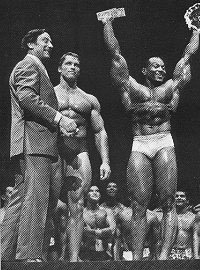 His status as a bodybuilder par-excellence was realized when he won the IFBB Mr. Olympia in 1967, '68 and in '69. These three contests each proved significant for Sergio as in the first he began his rein as the greatest bodybuilder of the '60s, and possibly of all time, the second he won unopposed, the first and only time in Olympia history this has been done, and in the third he beat Arnold Schwarzenegger, a man who would became his arch nemesis and provide him with his most monumental bodybuilding battles.
His status as a bodybuilder par-excellence was realized when he won the IFBB Mr. Olympia in 1967, '68 and in '69. These three contests each proved significant for Sergio as in the first he began his rein as the greatest bodybuilder of the '60s, and possibly of all time, the second he won unopposed, the first and only time in Olympia history this has been done, and in the third he beat Arnold Schwarzenegger, a man who would became his arch nemesis and provide him with his most monumental bodybuilding battles.
In 1970 Sergio and Arnold battled it out again for the Mr. Olympia, but this time the Austrian was the victor much to the Cuban's dismay. Sergio feels he should have won this contest along with the 1972 "Essen Germany" Olympia where he competed at his biggest and best yet lost again to Arnold, who was not at his best. He alone does not hold these sentiments.
After his '72 Olympia defeat Sergio left the IFBB and competed in Dan Lurie's WBBG (World Body Building Guild) federation, winning everything on offer. Needless to say, when Sergio left the WBBG in 1978, having won the Mr. Olympus for the third time, he was undefeated in this federation.
In the late '70s, early '80s Sergio also competed in, and naturally dominated, the WABBA federation winning the WABBA Pro World Cup twice (in '80 and '81) and the Professional World Championships twice (in '77 and '80).
Before the 1972 Mr. Olympia, Sergio met and trained with the great Arthur Jones, an exercise pioneer who developed the Nautilus range of bodybuilding machinery.
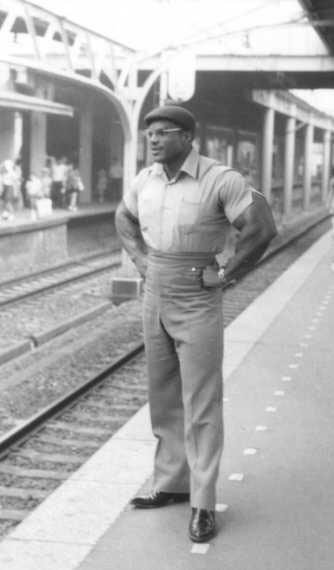 Sergio made some of the best gains of his life with Jones and to this day Arthur is one man he speaks very highly of. It was when training with Arthur that Sergio proved that he had the largest arms in bodybuilding - 20.5 inches cold, 22.5 inches pumped - a fact stringently verified by Jones.
Sergio made some of the best gains of his life with Jones and to this day Arthur is one man he speaks very highly of. It was when training with Arthur that Sergio proved that he had the largest arms in bodybuilding - 20.5 inches cold, 22.5 inches pumped - a fact stringently verified by Jones.
Sergio made his IFBB comeback at the 1984 Mr. Olympia, a move that pleased his many fans but rankled the man himself, as he had not prepared as well as he could have but nonetheless looked to be a top five contender. He placed eighth earning the ironic title "The eighth wonder of the world."
A member of the Chicago Police Department for 27 years, Sergio worked hard to keep the streets safe. His massive size certainly made offenders think twice before committing crime on his beat.
Since arriving in Chicago Sergio had always worked very hard. While other bodybuilders may have enjoyed the sun and surf in California, Sergio was sweltering in a dingy metal foundry, working 14-hour days before going to the gym for brutal three-hour sessions with another form of iron. On weekends he would indulge in his favorite pastime: dancing.
Never one to take a backward step and always a man to speak his mind, a self-proclaimed rebel who did, and does not sell his soul for glory and say and do the "right" things to further his career, Sergio feels his independent nature may have worked against him.
In his view he never lost a bodybuilding contest, yet he was defeated several times. While clearly there were contests he was not his best in, there were others he should have won but did not. Were politics to blame? Nobody really knows for sure, but Sergio feels he has the answers, which he gives in black and white terms in his new book: Sergio Oliva, The Myth; Building the Ultimate Physique.
Along with his book project, Sergio has kept himself busy with weight training and appearances. He still travels and meets his legions of fans, something that he loves and feels blessed to do.
The Interview ///
In the following rare and exclusive interview, Sergio discusses his life in bodybuilding and relays never before published key aspects of his various careers, all comprising a journey that has taken him from oppression to freedom to bodybuilding domination. Enjoy the ride.
David: Hello Sergio. I first have to say it is a pleasure to talk to you today.
Sergio: The pleasure is all mine, always.
It's a funny thing. I never expected to do bodybuilding because my country was a communist country and in a communist country back then, bodybuilding was not allowed. In Cuba they didn't have bodybuilding competitions. Now any other sport, and weightlifting yes, but not bodybuilding. So this how I managed to get out of Cuba, on the weightlifting team, and when I came to the United States I continued competing in weightlifting and won everything. But always I have had my favorite, which was bodybuilding.
Number one for me: John Grimek. And the second one: Steve Reeves. I liked both but I always liked John Grimek more because I liked bodybuilders to be strong. I don't want to be like a balloon and not even deal with 300 pounds. Now I like Steve Reeves but he was not as strong as Grimek, but he had the perfect physique.
So at that time I didn't speak one word of English, but I always used my head, and thank you to God for giving me the ability to use my head. I bought the magazines and got from the magazines the posing routines that John (Grimek) and Steve Reeves were doing and put a little combination of both (of their routines) and a little combination of mine and that is how I started doing bodybuilding.
I was competing over here in the United States in weightlifting. And you know I had enough medals (from weightlifting) and I said, "Now it is time to make some money," because in bodybuilding you could make money. Not the money that they are making today but back in those days it was still pretty good money. And this is how I started my road into bodybuilding.
When I started doing bodybuilding I was competing as an amateur. You don't make money because they would tell you it is a profession (if you did). But for the photo studio shots they were entitled to pay you and you could continue to be an amateur.
I started weightlifting back at home (in Cuba) when I was not quite 18 and it was an accident. I wanted to come to the United States, but several of my friends wanted to come in on the boat, and to tell you the truth I never liked this idea. I'm not such a great champion that I would fight the sharks. I am scared of death. I don't care; call me chicken if you want. I don't deal with that.
So one time they got a small little boat and we were planning to leave Cuba to go to Miami (to defect) and there was supposed to be just three guys. When I got there to escape there was like eight guys! And they did not even fit in the boat. So that means you have to have three with their legs outside the boat and I said, "no way Jose."
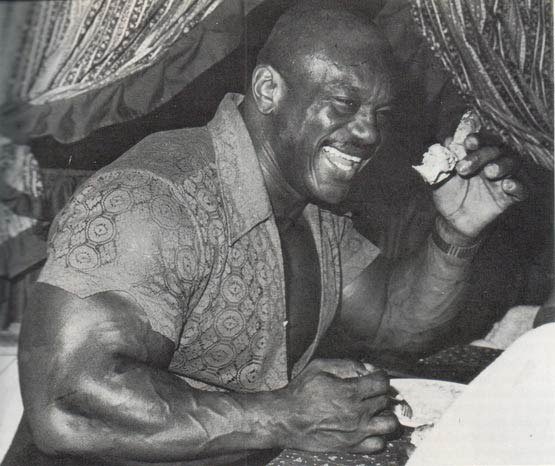 I am thinking if I go from Cuba to Miami I am going to lose my legs. I said, "No, I am not going." So there was another time. Before this time I said, "It seems like I am going to have to stay in Cuba for a while." I had always been, not really skinny, but good and strong because I had always worked very hard in my life, always. And I had always been very strong. But I had no knowledge of weightlifting or bodybuilding. I was not doing any sport because we were too poor.
I am thinking if I go from Cuba to Miami I am going to lose my legs. I said, "No, I am not going." So there was another time. Before this time I said, "It seems like I am going to have to stay in Cuba for a while." I had always been, not really skinny, but good and strong because I had always worked very hard in my life, always. And I had always been very strong. But I had no knowledge of weightlifting or bodybuilding. I was not doing any sport because we were too poor.
So I was on the beach lying down with a couple of friends one day and thank God a man, who believe it or not was a member of the Communist Party, came along. I didn't know it at the time so I was lying down with my friends at the beach and I saw this man go by and then come back and I started getting a little frustrated.
So when he came back for the third time I jumped up and said, "Well what are you looking at? There are no women over here." And I had to apologize because I was not really thinking when I opened my mouth, and he said, "I have been watching your physique. Did you ever do this and did you ever do that? Did you ever lift weights?"
I told him no, no, no and that I just worked in construction whenever I could and worked at cleaning the back yard, whatever. Whatever I could do to make a buck at. He said, "Okay, don't get me wrong, here is my card. I am a professional manager on the Cuban weightlifting team. I said, "Oh no, no way." Because you have to have a good diet to be a weightlifter; you cannot go all day without eating and be having one meal at night, then going to the gym the next day. No way!
So he said, "Let me worry about that. You just come and see me." And this is the honest truth. So the next day I went to the town were he had a gymnasium. So I went to the gym. And I asked for this man. And he said to me, "Don't say anything and don't do anything, just go over to that lifting platform." So he got an Olympic bar with two 45-pound plates on each side and he asked me to pick it up as high as I could. And I picked it up all the way over my head. For me it was really nothing but for him?
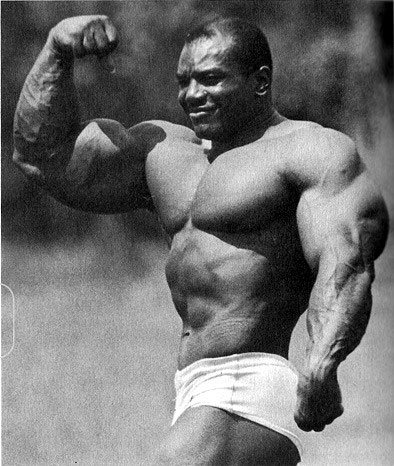 He started screaming, "I have found it, I have found it," and on and on. I said, "Jesus Christ I think this guy is a coo- coo." But he knew what he was seeing in me. I didn't know. So anyway he said, "Here is the deal. You are going to work for me, you are just going to clean the gym and put the weights back and take care of everything over here, I will pay you every week and when I come in you and I, we training.
He started screaming, "I have found it, I have found it," and on and on. I said, "Jesus Christ I think this guy is a coo- coo." But he knew what he was seeing in me. I didn't know. So anyway he said, "Here is the deal. You are going to work for me, you are just going to clean the gym and put the weights back and take care of everything over here, I will pay you every week and when I come in you and I, we training.
And we are training like maniacs, yes indeed." And we started and I thank my Lord Jesus Christ. I think I have been blessed over in Cuba and even when I came over here (to America) and got into bodybuilding. I have been blessed.
And I started getting so powerful. Well of course now I have a little money and now I eat three meals a day besides that. He gave me all the protein and vitamins I needed for my training. You know he put in everything. He then said, "In three months we go and compete in an amateur competition and you are going to beat everybody." I said, "Oh my God."
So I started playing with weights that people in the gym spent years trying to move but could not. We then went to Havana for my first amateur competition. And everybody had started going and going and going (lifting in the contest). I asked him, "Okay, when am I going." He said, "Not yet."
The other people were going and going. I said, "Are we going to start yet." And he said, "No, not yet." So when everybody had finished he said, "Now we are going to start." So I went up there and they told me not to think about anything, just think about myself. And in those days you had the Press, the Snatch and the Clean and Jerk.
You had to start with the press first. So I went over there, across the floor, and he came with me, and the last weight the last person had finished with, and I will never forget this, he put two 25 pound plates more on each side and that was my first one (lift). So on that first one I broke the Cuban record; on my second attempt I made a new record; and on the third I said I would break my own record and set another record. And from there I went on. So I am telling you I always believed it from then up until now that I have been blessed.
Then he wants to make sure that I have the best technique. He said, "I want to take you to the top, but they are going to send a delegation to Moscow, Russia and they have the top lifters so we are to learn from them." You know back then you had Alekseyev (Vasiliy), and Vorobyov (Arkady Nikitich) and all those people.
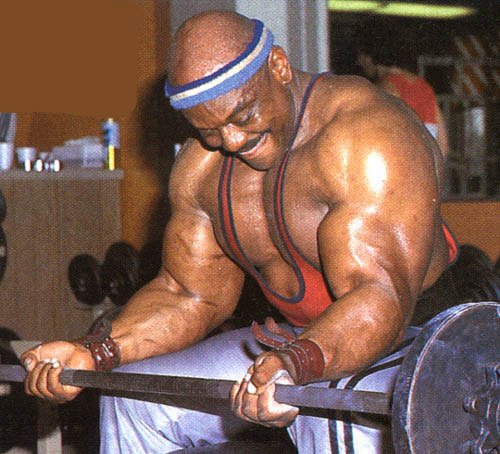 They were to send a delegation from Cuba to Russia and we were to spend three months over there and train and then go back to Cuba. When I went over there my three totals from the Clean, Snatch and Clean and Jerk were almost 900 pounds. When I came back my total was an even easy 1300 pounds "in training," and people who know will tell you in training you will do about 40 or 50 pounds more. So we are back to Cuba to prepare for Kingston Jamaica, for the Pan American Games.
They were to send a delegation from Cuba to Russia and we were to spend three months over there and train and then go back to Cuba. When I went over there my three totals from the Clean, Snatch and Clean and Jerk were almost 900 pounds. When I came back my total was an even easy 1300 pounds "in training," and people who know will tell you in training you will do about 40 or 50 pounds more. So we are back to Cuba to prepare for Kingston Jamaica, for the Pan American Games.
We are ready to go and they take the Cuban delegation to one private place and we had everything and ate like millionaires. We had everything but only got one day to go and see our families, but we could not bring anything to our families. Meanwhile your parents and your brothers and sisters hardly have one meal a day. That was killing me. It was killing me but there was nothing I could do, I had no control.
If they catch you taking anything out you go to jail and there is no time limit. So if you go to jail just maybe they will let you out. You could eat anything you wanted, like eggs, steak, vitamins and protein but when you get your pass to go and see your family: zip. Nothing.
I said, "Okay I am going to swallow this and I started training like an animal and everything was coming and coming and coming and this is how I met Fidel Castro who came to pay us a surprise visit one day, about three months after we had arrived back from Russia. He walked up to me with a cigar in his mouth, put his hand on my shoulder and said: "Hey you are something else."
When Batista was in Government, everybody got everything. We have such a beautiful island and people were coming from all over the world. Back in those days there was no Vegas, no Reno, no casinos. Everything was in Cuba. It had the best nightclubs. People from Florida were going to Cuba for the beach. The water was so clear. Cuba was connected with every single country in the world. We had no problem. So the big change came especially for the people who had money. I never had anything.
Yes it was my way out.
Oh yes, I had a plan to do that from the beginning. The problem is everybody was scared of everybody (under Fidel Castro's regime) and nobody mentioned anything. I was the captain of the weightlifting team and nobody told me that they were going to defect in Jamaica. And I wouldn't tell anybody what I was going to do.
As far as I was concerned, I wanted to compete because I could have won three to four gold medals that I really wanted. I had my plans all the way from when we were training, from when we went to Russia and when we came back and from when we went to Kingston. You know I really wanted to come over (to America). But you have to keep your mouth shut.
The problem with it was that some of us had an idea that I was going to take off. And I know that out of those people, the majority, I was the only one that came from a poor family. The majority were rich people. I assumed a lot of those people were going to take off. That is why they sent a delegation to pretend that they were going to compete in the shooting event so they would be allowed to carry guns. But they were not interested in that kind of competition; they were secret police for Castro to make sure that we were at one place and would only leave to go to the competition. There were also spies among us.
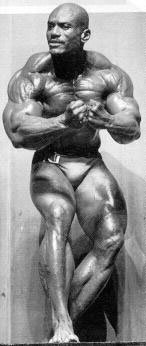
It was but I didn't tell my Mum because she would have gone berserk. I didn't tell any of my brothers. I trust my brothers, but the feeling was that back in Cuba a brother does not trust a brother and a parent does not trust their children. It was a disaster. So I didn't tell anything to my brothers, but I did talk to my Dad. I told him what my plan was and he said, "Don't tell nothing to Mum and if you have the open road go and don't look backwards. If you go, go all the way and don't look back because if they catch you, you know what's going to happen." And it was the last day I saw my Dad.
So we are training and doing this and that and every once and a while Fidel Castro comes into the special training facility to make sure everything's okay and this is how I met him as I said before. Then we went to Jamaica.
After a few days in Jamaica I finally located the U.S embassy so I planned to escape the next day. But we were competing the next day and were to go home right afterward so it was now or never. I started running to do a warm up and they asked me what I was doing. I told them I was warming up because I was competing the next day. Then all of a sudden I took off.
So I took off, walking at first, and gained more and more speed. I was running like a deer. And I only had on a pair of shorts and a cap with no shoes and was tracing the steps I had taken earlier that day. Then I saw a big crowd coming behind me and in my mind I thought it was the secret police. So now I start running even faster than before because I wanted to get into the American Embassy before getting caught.
If I was captured it could have been 30 years in jail or the firing squad. But the problem was there were no secret police after me specifically; it was the rest of the delegation who were watching me, including members of the special police who were running because they wanted freedom as well.
The delegation was watching me because in Jamaica they were asking me, "Sergio Oliva, we are in Jamaica now, what are you going to do?" I said, "I don't know, what are you going to do?" They said, "Well I don't know." And it would go on like this. Everything was up in the air and you could feel the tension.
So when I take off I am the first one running and in those days the Embassy had two Marines outside and I was coming like a torpedo. As I ran and picked up speed a wheelbarrow of mangoes came from nowhere. I jumped this and then jumped a large fence. Then I approached the door of the Embassy with the two Marines outside of it.
I would have taken both with me if they had tried to stop me. So they opened the door and I went through, but right after me there were many of the delegation trying to escape and about half of them escaped. And everyone came right after me and we had gotten inside the American Embassy and they were screaming and crying and jumping and we cannot believe it.
Everyone was shouting and jumping and embracing each other, even Castro's Secret Police. What are we going to do now? So right away they call Washington and they say we have got a problem. They are going to send a small plane and take all of us to Miami Florida. And this is how we came to the United States.
No we could not do anything. We were under the protection of the FBI because we were making a big, big impact of the Cuban Revolution. I was supposed to bring the gold medals back but defected the day before, and I didn't compete.
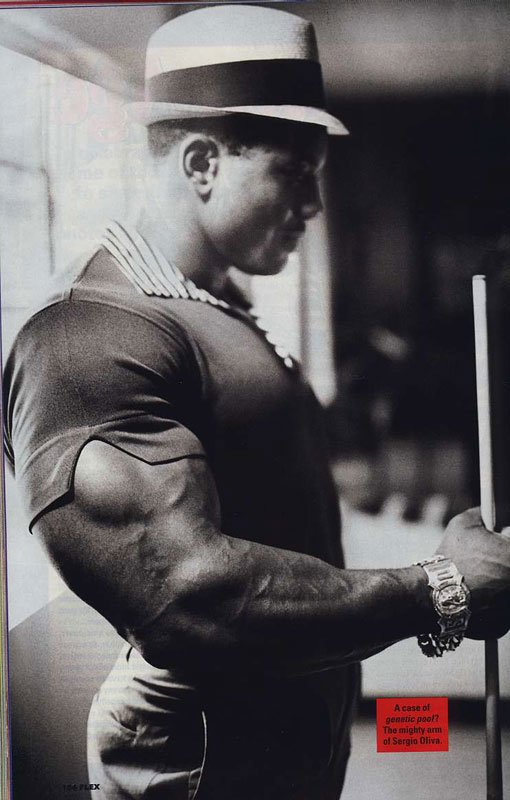 It was also funny because I wanted to work and I always had my mind straight up. I wanted to work and have the good things that the American people had and I wanted to work for it and I wanted to get it. So there was one problem, my problem.
It was also funny because I wanted to work and I always had my mind straight up. I wanted to work and have the good things that the American people had and I wanted to work for it and I wanted to get it. So there was one problem, my problem.
I didn't want to stay in Florida. Number one: there were too many Cubans there. Secondly: it was two close to Cuba and Fidel Castro and Raoul (Castro, Fidel's younger brother) were screaming. They were blaming me that I put the plan together and told the people to escape to the United States.
I got all the blame over something I had no idea was happening. But I don't care. And they (the U.S. authorities) started saying to us that we don't have to stay here (in Florida). A lot of them went to San Francisco because they are Cuban and like the hot weather. You know, they went to California.
They asked me where I wanted to go and I said, "I wanted to go to Chicago." And they were like, "Chicago! You don't want to go to Chicago. They still have gangsters in there and the mafia and it's so cold and it snows there." And I said, "I want to go to Chicago." I always liked the word Chicago. And today I have been in Chicago for 45 years. I have had the opportunity to become a citizen of Australia and other places and I refused. Chicago. I like to go out and then come back to Chicago.
I like everything. The people, we have it all over here. The restaurants are open for 24 hours. You have a choice: you want to eat Greek, Italian, Chinese, and Cuban - whatever you choose. And I like to dance and you can go dancing every night. They have many nightclubs. You can go everywhere. If you work then you deserve it. It has many good things. It is a beautiful and wonderful city.
No not me.
Yes at the Duncan YMCA, that is how we met. We trained sometimes together and I would teach him the weightlifting and he would give me some bodybuilding tips and that is how I started putting everything together (bodybuilding).
I then decided to quit weightlifting and go into bodybuilding and we both prepared for the amateur Mr. America (1964: Sergio's first Mr. America). And this was around the time when they only had Dianabol and I was growing like a balloon. Not only huge but with God-given proportion and symmetry and that is why in today's age I have three poses that nobody can copy, including the Victory Pose. Nobody can do that.
Well he tried but you know it is a mile away from the original one.
You see what happened is: I always worked hard. I didn't have the luxury that the other people had where they could lay down at the beach and get paid by Joe Weider and they get all this stuff. And I didn't want to live in California. I wanted to stay in Chicago. So I was working in the foundry when it was 100 degrees outside, which meant it was almost 400 degrees inside.
You had to work hard all day. It was so intensive that in every contest, from the first one to the last one in '84, I only dieted three weeks out from the show. I didn't need to diet; I was eating everything.
I would drink a gallon of milk every day, and I would drink two gallons of water a day. But I'm sweating all day long: ten, 12, 14 hours sometimes. And the thing is, when I was finished working in the foundry I would go to the Duncan YMCA and do my workout for another brutal three hours. Then I would go and spend one or two hours in English classes at night. By the time I got home I just eat and drop dead until the next day. My two days off were Saturday and Sunday.
I don't know but I did have it. It was like I looked after myself. I don't smoke, don't drink or do any of the other stuff. I would just work, do my sport and go dancing on Saturday night, then Sunday I would go to a movie then go home, then go to work. That was my life.
No my training never has changed. I still do the same training even today. I go to the gym Monday to Friday, exactly what I did 40 years ago, and the routine is the same. I just don't lift those heavy weights any more. I don't need it. Like I told you I would pick up magazines and put it together (bodybuilding training and posing routines) and from there I would make my own.
Did you know I made my own posing routines? That was one of the problems with the big promotion guys. They cannot say they made me. Uh, uh. Nobody made me, only my God and my heart and the fact I worked so hard. Nobody else made me. I made myself, my own routines - everything on my own. And it was dynamite. I was growing. Like when I was in Cuba doing the weightlifting I was growing fast, fast, fast.
There were many times before I made it here where we were training hard. But then when I get over here there were people that were there that assumed that I had been training in bodybuilding for a long time, but I had only been training for a year and a half. And they would say, "How long have you been training?" And I would say, "How long have you been training?" And they would say, "Oh I have been training for ten years."
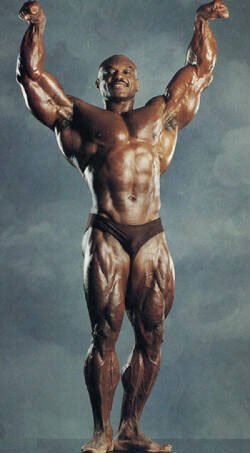 And my forearm, I mean it was bigger than their whole body. And they would say, "How long have you been training, 15 or 20 years?" And I would tell them, "About a year and a half." People would say, "Get out of here." I would say, "Well, it is up to you." And from there I went on and on and on, all the way.
And my forearm, I mean it was bigger than their whole body. And they would say, "How long have you been training, 15 or 20 years?" And I would tell them, "About a year and a half." People would say, "Get out of here." I would say, "Well, it is up to you." And from there I went on and on and on, all the way.
I was the only one to win the Professional Mr. America uncontested. Nobody dared to jump on the platform with me. (That night) I did my guest posing and picked up my money for winning Mr. America and I left the rest of the trophies so they could fight for the second and third places. I was the only Mr. Olympia competitor in '68 where nobody dared to jump on the platform; I did the same thing. I was the only one (to win a Mr. Olympia uncontested). It is still a record today.
Like I said, I feel lucky to have been watched over by that big guy upstairs.
There is no question about that. I was training with a very dear friend, Bob Gajda, who was helping me with many things including helping me to learn English, and we both went there (the 1966 Mr. America) and all of a sudden the guy announced me as second place.
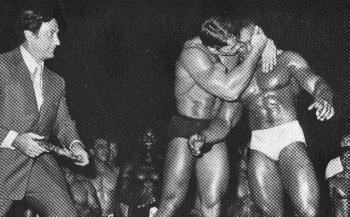 I said, "Is that because I don't speak much English?" It is an excuse but back in that day it was very hard for a black man, a Latino American, to win the Mr. America. So we know that, but it was so obvious. Listen to this: I won the best legs, the best abdominals, the best chest, the best back and the best arms and the most muscular man. What else is left? How can they say I am in second place?
I said, "Is that because I don't speak much English?" It is an excuse but back in that day it was very hard for a black man, a Latino American, to win the Mr. America. So we know that, but it was so obvious. Listen to this: I won the best legs, the best abdominals, the best chest, the best back and the best arms and the most muscular man. What else is left? How can they say I am in second place?
It was a joke but I went to my friend, Bob Gajda (who won the 1966 Mr. America), a very honest man, and he said, "This is not right." I said, forget it; they said you won it and you won it. Whatever has happened we are still friends." I really don't feel bad at all because deep inside of me I know I didn't lose.
Obviously the Mr. Olympia. It is the top.
I enjoyed all of them.
When you prepare for the Mr. Olympia you feel you are at such a high level that you feel like dynamite and I always felt good. And I always had the fans with me. No matter if they took it away from me or not there is no better judge than your eyes and people all over the world know that I never lost against anybody.
I don't mean to sound proud but it is true because, even to this day, I travel and take all my pictures with me and I'm still selling everything and people are coming and seeing me like they were back in the '60s. So I don't feel bad at all because deep inside I don't feel I lost any competition.
Well that's what they say.
Somehow it had to be something to do with my bone structure, genes and many other factors and when I put it all together and trained the way I did... It was not easy. I trained brutal all my life. It was like an explosion and I was growing like a balloon. Boom, boom, boom like crazy.
When I was standing in front of the mirror when I was pumped and putting the baby oil on and everything (prior to going onstage in a bodybuilding contest) that was the only time I saw myself. And it was, "Oh my God, you really did it." You walk out and you see the expression in the people's eyes. But you don't see yourself. I only saw it one time. And then I realized why people looked at me that way.
My arms were so crazy and the only one who measured them was Arthur Jones. God bless him in heaven because he was real good to me and he was a very honest guy. He didn't believe in all the other stuff. With me he was like a father and took me under his wing. And I spent, I believe it was four or five months in Deland Florida with him and he took care of everything and he took care of me like I was a king. The guy was an incredible man.
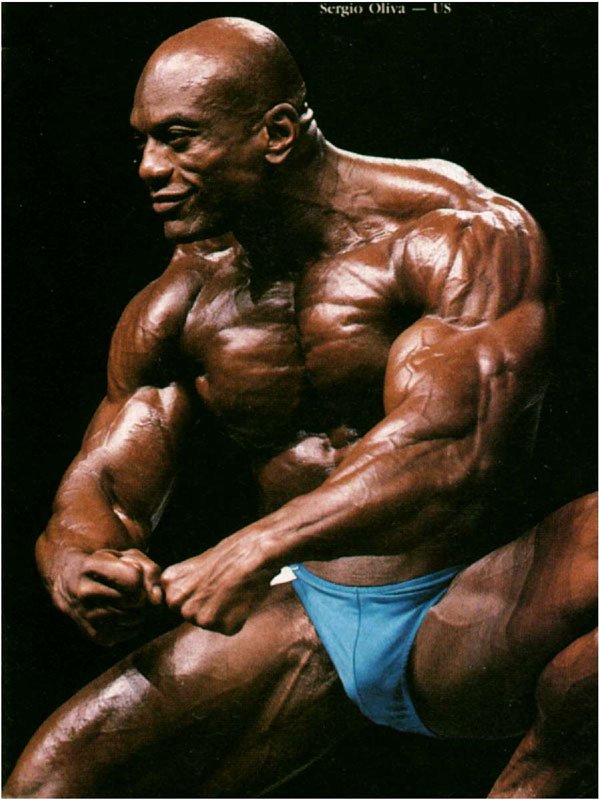 He made an offer to all the bodybuilding champions all over the world to come to Daytona Beach and as soon as you got off of the plane he would put the tape around your arm to see who really had the biggest arm. Well, I was the only one who had a cold 20-and-a-half inch arm, pumped 22-and-a-half inches. Nobody else had that.
He made an offer to all the bodybuilding champions all over the world to come to Daytona Beach and as soon as you got off of the plane he would put the tape around your arm to see who really had the biggest arm. Well, I was the only one who had a cold 20-and-a-half inch arm, pumped 22-and-a-half inches. Nobody else had that.
You see in the magazines this guy has got a 21 (inch arm), this guy has got a 22 and this one has a 19-and-a-half. When they went to Florida, and everyone went to Florida, the only one who came close to me was Arnold and his was only 19. My arms were so big that they were bigger than my head. I was the only one, cold.
Oh yes, that is correct. I had a waist like a woman. I was in a show weighing 240 or 245 and I got a 27-inch waist. And no way will you find a guy who has that bodyweight and a waistline like that. A guy that weight would have a waist of about 40 or 45-inches. My biggest waist measurement was 28 in Essen, Germany.
No, what happened was Arnold and I were competitors but we were friends; he came to Chicago one time, him and Franco Columbu, and I took them under my wing and they stayed with me. We had dinner at my house and we trained together. My training was brutal. Everybody even to today's date, 40 years later, feel that I have kept some kind of secret. It was no secret. It was hard work and being blessed by the Lord. There was no other way.
So back to the '70 (Olympia), Arnold came in and posed and then I came in. Arnold posed like a great champ and then I came in and it was unbelievable. In those days the Mr. Olympia was held in the Academy (Of Music) in Brooklyn New York. And I was in my top shape, not the best, but one of my top shapes. And I was in incredible shape. And I knew I would not lose against Arnold because I had no weak spots and so anyway he went on and he's a warrior.
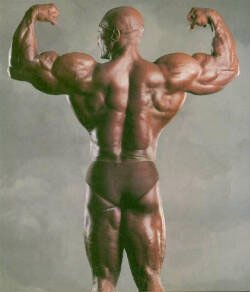 Today we are still friends but we were then both going for the title. After he competed and did his poses I did mine. Now we went out for the pose-down. So we are going on and on and on and on. Obviously we were almost dead. Now there was nothing else to show. It was all baloney.
Today we are still friends but we were then both going for the title. After he competed and did his poses I did mine. Now we went out for the pose-down. So we are going on and on and on and on. Obviously we were almost dead. Now there was nothing else to show. It was all baloney.
It (the presumption that Arnold tricked Sergio) was a trick by Joe Weider, something that Arnold did not know about. But when he posed and I posed and we went through the pose-down it was not announced who won the show. I have always been a gentleman. So he said, "I have had enough", so I said he could go first.
Then he said, "go ahead" and I walked forward - so I walked and all of a sudden people started screaming: Arnold was still throwing a couple more poses. So I came back and started doing it. There was no deceit or anything. It was already set up. The judges said that I gave up the pose down. We already finished the pose down. Nothing else. You can take it from there and figure it out for yourself.
That's exactly what it was. After the '69 Olympia they said I was banned from the IFBB for competing in a non-IFBB contest. They never told me about the ban so I naturally went along to the '70 (Olympia) to compete. That is when it all happened.
Yes that was when I was with Arthur Jones. So I came back to Chicago. It was the biggest, the biggest I have ever been. For back in those days it was unbelievable. I weighed off-season 270 pounds and I'm only five ten. And I was solid. So Bob Kennedy (publisher of Musclemag International) from Canada did an interview with me and his eyes almost fell out of his face.
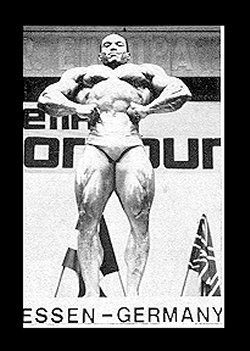 I know I was huge. So I started reducing when the contest came closer. I will tell you why I do that. I know Joe and I know they are not going to let me win. But I want to set a record. And today people are still talking about Essen, Germany '72 because you don't fool people.
I know I was huge. So I started reducing when the contest came closer. I will tell you why I do that. I know Joe and I know they are not going to let me win. But I want to set a record. And today people are still talking about Essen, Germany '72 because you don't fool people.
You can pull a trick in the magazines. You can put one of those poses where I am not even completely posing and put another competitors photo alongside this photo. You can do all the tricks in the magazines, but up on the stage, uh, uh. And in Essen, Germany, oh my God, forget it. They loved me.
So I prepared myself and went to Germany at 245 pounds cut like a ribbon. So we all started preparing and everybody went through his routine and everything. So they called us back and forward, back and forward. Always it was Arnold and myself, Arnold and myself. Nubret (Serge) was there and Zane (Frank) and the rest of the guys. And so they put me in the front, then they put Arnold and I think Nubret.
But before we went onto the stage the guys came in and said, "Lets put them in alphabetical order." So this means the tallest one went up front which was of course Arnold. And they put me in second to him. That is when Serge Nubret said, "They have cheated you." And I told him, "You know what, I don't care." And I don't think that Arnold even knew. Nobody knows about this story so you can quote me on it. It was so obvious that even Arnold himself said, "I don't deserve to win this." So that was the story.
Yes, that was it. It was over. And their excuse was that I was banned from the IFBB. When you ban a person from competing they have to send you a letter. Notify you. And you get a copy of that. I never received anything to say I was banned from the IFBB. I had no clue and no idea. So they knew I was going to Germany, but they didn't let me know (about being banned from the IFBB) before I went up onstage. They didn't even bring me a copy backstage. It was all baloney.
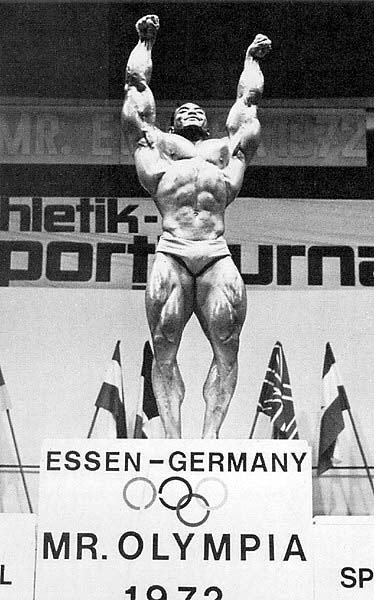 The problem was Dan Lurie, another big promoter in New York. He was doing a show and invited me to compete. Whoever invited me to go, I would go and compete - I did not belong to anybody. They called me the Cuban Rebel, but listen to this: nobody made me except my Lord. I made myself and I put everything together myself.
The problem was Dan Lurie, another big promoter in New York. He was doing a show and invited me to compete. Whoever invited me to go, I would go and compete - I did not belong to anybody. They called me the Cuban Rebel, but listen to this: nobody made me except my Lord. I made myself and I put everything together myself.
When everybody was laying down on the beach and getting paid by Joe Weider I was working in the foundry. I had to get up for work then I had to go to the YMCA, I work out, and when I am finished I go to my English classes then go home and like I told you before I drop dead.
So Dan Lurie was holding his contest and invited me and I went. So they said that Joe would feel like I was betraying his organization, but nobody told me not to go (to compete in Lurie's show). Nobody said anything, so it is about the money. So I go to get the money that I certainly earned. Then the '72 (Olympia) came and that is when this baloney happened (the Essen, Germany Olympia loss).
Yes, that is what they said. They said I was banned for one year.
Right. It was all baloney.
Yes. You don't have to go to school to know that. I don't have a college degree but I'm not that dumb. But what this did was to make me even more famous. More famous all over the world because the word spread out like a, oh my God, like a stampede. Nobody believed it. It was no way. And to this day Arnold and me are still friends.
I go to the Arnold Classic almost every year. And we are still talking; we are still friends. I congratulate him on what he did in Hollywood and I am glad now that he is the Governor (of California). We are talking and there is no problem at all.
He gave me a run for the money, no question about it. Yes he was the only one who came close, as there was nobody else.
Well it was my proportion and my symmetry and my little tiny waist. And then there were those huge arms and my back. I want to tell you something: one time at my first professional Mr. America that I won in New York everybody was talking about me before I came in.
They all talk about you before you come in so you know you must be huge. But a black man didn't have good calves. That's a fact. And when they have them they have them real high. So I'm a black Cuban but my calves were so full. I had 20-inch calves.
People didn't have 20-inch arms. So they were saying, "He's a black so we are going to get him on the legs." When I took my pants off (laughs) and they saw my legs and my calves they said, "Forget it (laughs)." I still didn't win the Mr. America, but that was phoney anyway, but my body was not phoney.
They said, "We got a break" because it is just natural (that a black man does not have big calves). That is the truth: black men don't have calves and when they have them they are too high, not full all the way to their ankles. But that is how my calves were (full).
The biggest mistake in my life because I listened to my ex-wife, the one that almost sent me away for good. Like I told you before, I never dieted. I didn't need it because I had always worked. Because then I began to study and analyze my body, so I knew what kind of metabolism I had - I knew whether it was fast or slow. I became my own doctor and that is why I set up everything my own way.
So my wife at the time wanted me to go on the Frank Zane diet and he weighed like 165 pounds. I said, "No way. I am going to die (on that diet)." She said that since I had not been competing (in the Mr. Olympia) since '72, if I went in real ripped I might be able to do it.
I said, "listen to me, I don't want to keep fighting about this. I am going to do the diet." I tell you this: even if I went to the 1984 Mr. Olympia looking like King Kong and ripped to the bone they are not going to let me win the Mr. Olympia. I had been around the world telling people how they cheated me in this contest, how they cheated on people and I would shake the boat and everything.
So they are not going to let me enter in '84 and win the Mr. Olympia again. Even if I had the physique that I had back then (when winning the Olympia) there would be no way. So I did the diet and I was dying, not dieting. Dying! I looked like a zombie! I used to go and pump and do bench press and shoulder press and pump my arms and pump my back and I was like a torpedo. And people would say, "Man, he has energy." In '84 I had nothing like that. I would pump a little back and then sit down on the bench, pump a little more sit down on the bench and that was it.
Even on top of that they set me up again. We were all in the one hotel. So they are supposed to knock on each door and they will pick you up and put you on the bus and take you to the Mr. Olympia venue for the prejudging so you could prepare ahead of time. The time goes by and I had dropped dead (sleeping in hotel). So by 9:30am my wife said, "Wake up." And by God everybody had gone. I said, "What time is."
Everybody had gone. I told my wife to stay with my son, and this is the contest were I held him onstage when he was only a few months old. And I told her to take a taxi and meet me there. I had to run over there fast or they were going to disqualify me. So I run over there to get a taxi and when I get there, guess what? You will never guess. They give me the number one.
They not only left me back at the hotel, they give me the number one. Well that was me. I took off my clothes and grabbed a dumbbell on the way to the stage. What can I do? You need to prepare like any other time. You need time. I hardly had the time for someone to help me put on the oil.
My muscles were not pumped. I was not that kind of great, great, great, but it was all set up. I was the first one to go on the stage... completely cold. And on top of this I find out from one of the judges that no matter what kind of shape Oliva was in, no matter if he was coming looking like King Kong, he won't go higher than eighth place. And that is why they called me the "Eighth Wonder of the World." And that is exactly what happened my friend.
Everybody knows. I had no coordination, no pump, and no preparation at all. And that's because my goofy wife said to do the Zane diet. And I told her, "I know my physique before I met you. I know what I need. I don't care, I can eat anything and I will burn it in two hours." I have never been fat in my life. But that's the way it was.
Nothing but fish and a lot of salads. Which was good because I always ate a lot of salads and vegetables. But I am a big eater. I have always been a big eater. So I was going to bed hungry and waking up hungry. So it was not for me. If it worked for Frank Zane, well good for him.
I traveled all over the world doing seminars and exhibitions.
Always. I still do it (seminars and appearances - not posing exhibitions!).
| Sergio Oliva's Bodybuilding Titles | |
| 1965 | AAU Junior Mr. America - Most Muscular AAU Mr. America - Most Muscular |
| 1966 | AAU Junior Mr. America AAU Junior Mr. America - Most Muscular AAU Mr. America - Most Muscular IFBB Mr. World |
| 1967 | IFBB Mr. Universe IFBB Mr. Olympia |
| 1968 | IFBB Mr. Olympia |
| 1969 | IFBB Mr. Olympia |
| 1972 | WBBG Mr. Galaxy |
| 1973 | IFBB Mr. International |
| 1974 | WBBG Mr. International |
| 1975 | WBBG Mr. Olympus |
| 1976 | WBBG Mr. Olympus |
| 1977 | WABBA World Championships |
| 1978 | WBBG Mr. Olympus |
| 1980 | WABBA Pro World Cup WABBA World Championships |
| 1981 | WABBA Pro World Cup |
Thank you to God I am good. I have been through a lot of stuff but I am still here. I have had 17 surgeries throughout my body. I am still training. I have had two knee replacements and have broken my rotator cuff. And I am now back to training. Other than that I feel very good.
All over. They repaired both knees. I have had surgeries on my toes, in my elbow, on my rear deltoid and the shoulder joint. I was falling apart for a while, but now I am okay.
Yes, thank God.
Shoulder training is very tough and you have to coordinate the kinds of exercises you are going to do. You cannot (after injury) push your shoulders all the way to the back to do, for instance, a press behind the neck. So I had to eliminate a lot of the exercises that I used to do.
Basically what I do now is a little bit of free weights and mostly machines. With the machines I can get away with it because it is only moving in one direction, so that is what I have been doing. But I still lift very good and I thank God for that.
Oh yes. They have become narrower because of that, yes. I now weigh only 200 pounds.
Oh yes, almost 28 years before retiring.
Oh it was good. I was able to represent Chicago, the city that I love so much, and, of course, the Chicago Police Department. I could go all over the world and then come back and continue work.
To tell you the truth I have never in my life been an aggressive person. I always kept a low profile because the size of my physique was enough. When you get out of the squad car people are looking at you and they are freaking out. And I don't want to intimidate anybody. I wanted to be nice to everybody the best I could. But if I had to do my job, I did my job. Only one time when something went down.
You see I have always worked alone. We were usually required to have two men in each car before and then I requested to work alone, the reason being that I only trusted myself and I like to go to a lot of places where it was best for just me to be going, and many other things.
I only trust myself. And since I wanted to do this (work alone) I had to put in a request to the Superintendent of Police and it was granted.
So I was working by myself, and it was only one time that I remember, I was asked to go sort out a problem. And there were five police people and when they drink they go berzerk. And they were like crazy so I went over there and tried to calm it down.
I said, "I know you guys are celebrating but could you try to slow it down." That's when they turned around and one of them grabbed me by the shoulder. I said to him, "No, no you cannot touch my uniform." And I told him not to do that, and asked him to tell me what he wanted.
He said, "Who are you to tell us what to do." I said, "Well I will tell you who I am, turn around you are under arrest." And when I proceeded to put the handcuffs on him he tried to throw one on me. But it was a terrible mistake because I knocked him flat cold on the floor.
Then the others (police officers) came in. I put my back to the wall and I know my training and I know my power. And I beat the h-ll out of all five of them. Knocked them all down in the fight. All out cold. I then called the wagon and they came in and just picked them up and threw them in the paddy wagon. I knocked them all down and I had no problem. I tried to be nice but he touched the uniform.
I had no choice.
Well I don't want to criticize anybody because we are all bodybuilding. But it is today at a different stage: they are taking all kinds of stuff, human growth stuff that I can't even pronounce. I wouldn't do that. I just hope the best for all of them but I think that I will not make any comment regarding bodybuilding today. I just wish them a lot of luck.
I would also like to say that a lot of people said I came 30 years too soon. I don't believe that because God sets the time and place for you, not you. And who knows where I would come these days? Because in those days I was like that, these days I might be 400 pounds and ripped!
Well that is something that is in the air. Maybe I wouldn't have even been a bodybuilder. Maybe I would have been a baseball player because that is what we play in my country (Cuba). So I don't believe in that kind of stuff. And I will never believe that.
I was here at a time - God brought me here and he chooses the time when you go. So you don't set the time. Whoever believes in that is making a terrible mistake my friend. Only God Almighty can do that (set the time).
What I believe is that back in the '60s it was my time and I did the best I could from there and that is all it was. Never mind if it would have been 30 or 40 years later it could have been like this or that. This is all guessing, all in the air. And that doesn't work.
I love everything about bodybuilding. Bodybuilding is my life.
Oh I miss that. I miss the stage. And even after '84 and all that stuff I stayed in good shape and did seminars and you still got the same feeling because when the people find out what country you are from they want to see you. And they always remind me of Essen Germany in '72.
Well I hope you can discuss the book because we have the opposition trying to blast the book. It's not a book it's a bomb. But everything is in black and white. Everything is in there: times, names, places and everything.
People in Europe who love me so much should get the book. It is over 300 pages and has over 300 pictures. And the material! They went way back. I didn't even know. This man, Frank Marchante, he has become like my brother. And he didn't tell me until after but he went back to Cuba, and my hometown, and requested everything from the beginning. And then he came back and told me what is in Cuba.
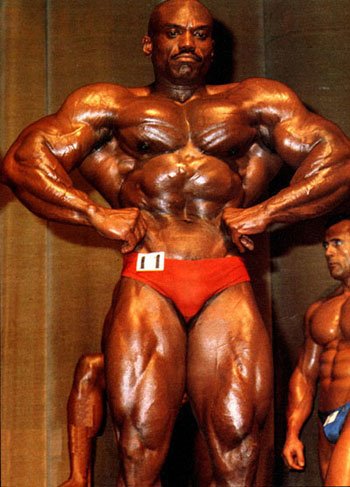 I said, "Come on." And he said, "Yes I was in your house." I said, "Jesus Christ!" I tell you how much I believe in this guy: I did tell him all my stories and every month he would take a little bit. I had nothing written down. Everything is in my computer, which means it is in my brain. What stays in your brain you will never forget.
I said, "Come on." And he said, "Yes I was in your house." I said, "Jesus Christ!" I tell you how much I believe in this guy: I did tell him all my stories and every month he would take a little bit. I had nothing written down. Everything is in my computer, which means it is in my brain. What stays in your brain you will never forget.
So I was giving him a little every month. And it was so much he didn't believe it. I also told him they are going to oppose the book because they don't want this to be out. So he found a lot of people and he found out what I told him was the truth and this guy (Frank Marchante) is so good at what he does. And that is what he told me: that he was going to find a translator because he wanted it (the book content) all in perfect English.
He told me he was going to promote the book himself and edit the book himself and that is what Frank Marchante did. A wonderful man. If it weren't for Frank there would be nothing. I also always thought I was going to die and people would never hear the truth. And the truth will set me free.
 That is what it is. He knows me so well, but I told him write it all down but don't print anything. You have to go back and check everything; back and forward and watch your back so you don't get hurt. I don't want this man to get hurt because he has a good heart.
That is what it is. He knows me so well, but I told him write it all down but don't print anything. You have to go back and check everything; back and forward and watch your back so you don't get hurt. I don't want this man to get hurt because he has a good heart.
Just go slowly back and forward, check the names, check the places, and check everything and then go through with the book. Because I know what I am saying. I speak not from my mouth but from my heart.
There are so many I don't want to mention them. Don't want to go there.
These are people from the magazines, people who run the contests for Joe Weider and are all connected with Weider's organization and everything. They don't want the book out. But it is out. It is in the bookstores, it is on the Internet or you can write to Frank (Marchante).
Give Frank a lot of credit because he deserves it. He is the one who made this conversation happen. Thank you very much and God bless you my friend.
My pleasure David. God bless you.
Sergio Oliva: The Myth, His Life Story
Sergio Oliva: The Myth, His Life Story book review coming soon to Bodybuilding.com. This magnificent book includes, in Sergio's own words:
- His rise to the top of the bodybuilding world.
- Insight into how he developed one of the greatest physiques in bodybuilding history.
- Sergio's secrets to incredible growth for anyone, at any age.
- Never before disclosed insights into Sergio's personality and mindset.
- Many entertaining experiences he has had throughout his bodybuilding career.
- The truth behind his many controversial bodybuilding contest placements.
- Bodybuilding politics.
A highlight of this book is the amazing number of never before published photos tracing Sergio's bodybuilding career.
